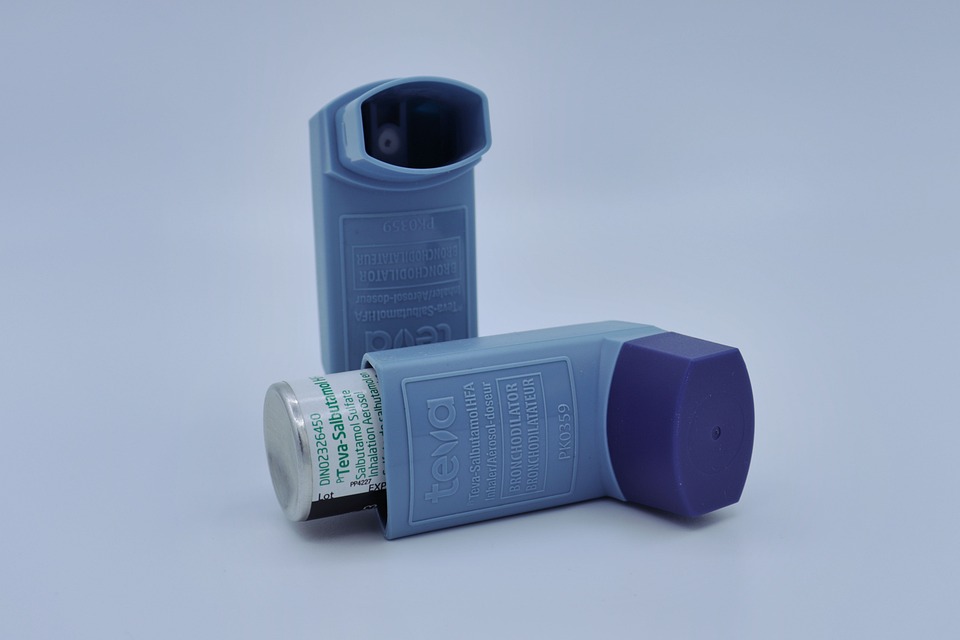Asthma is a chronic respiratory condition that affects almost four million South Africans. While it is usually managed with medication and lifestyle changes, an acute asthma attack is frightening and can pose a serious risk to your health.
ER24 EXPERT DELVES INTO THE COMPLICATIONS OF ASTHMA ATTACK
During an acute asthma attack, ER24 Pietermaritzburg Branch Manager Michelle Kieck says it’s important to take prompt action to relieve symptoms and prevent further complications.
If your doctor has prescribed an asthma action plan, follow it. Photo: Pixbay.com
ALSO READ: These wellness design trends make for a stylish AND healthy home
Here are ways to manage an acute asthma attack, courtesy of ER24’s Michelle Kieck:
Stay calm:
An asthma attack can be frightening, but it’s crucial to stay calm. Anxiety and stress can worsen the symptoms by increasing your heart rate and causing rapid breathing. Try to relax and focus on managing the symptoms.
Use your inhaler:
If your doctor has prescribed an inhaler, use it as directed during an acute asthma attack. Inhalers deliver medication directly to the airways, helping to open them up and alleviate symptoms.
Sit upright:
Sitting in an upright position can help open up the airways and make breathing easier during an asthma attack. Lying down will make it more difficult to breathe.
Avoid triggers:
Identify and avoid any triggers that may bring on an asthma attack. These can include cold air, smoke, pets, pollen, dust, and mould. If smoke is a trigger, go outside or move to a well-ventilated area away from the source of smoke.
Seek medical help:
If your symptoms are severe or don’t improve after using your inhaler, call 084 124. Acute asthma attacks can be life-threatening if not treated promptly, so don’t hesitate to seek help.
Stay hydrated:
Staying hydrated can help thin your mucous and make breathing easier during an asthma attack. Drink plenty of water and avoid caffeinated or sugary beverages, as they can potentially worsen asthma symptoms.
Avoid exercising:
During an acute asthma attack, it’s best to avoid any strenuous physical activity, as it can exacerbate symptoms. Rather use your energy to recover from the attack.
Follow your asthma action plan:
If your doctor has prescribed an asthma action plan, follow it. The action plan outlines specific steps to take based on the severity of your symptoms. It may include instructions on medication usage, symptom monitoring, and when to seek medical help. Follow the plan carefully to manage your condition effectively.
Stay prepared:
Asthma attacks can occur unexpectedly, so it’s crucial to be prepared. Always keep your inhaler with you, make sure it has not expired and has medication left in the applicator or ‘pump’. Many pumps indicate the number of applications left in the chamber while others require careful monitoring to ensure you don’t run out of medication. Your healthcare provider should regularly review your medication regimen and provide further guidance on how to prevent future attacks.
ALSO READ: 7 wellness tourism hotspots to experience in KwaZulu-Natal
WHY THIS CONDITION REQUIRES A PROMPT RESPONSE
“An acute asthma attack can be a frightening experience, but taking prompt action can help manage symptoms effectively.”
Kieck
ALSO READ: Here’s how to improve your indoor air quality for a healthier winter
“Stay calm, use your inhaler, sit upright, avoid triggers, seek medical help if needed, stay hydrated, avoid exercising during an attack, and follow your asthma action plan. In case of emergency, call ER24 on 084 124 for real help, real fast,” Kieck advised.
ALSO READ: Smartphone charging mistakes harming health of your battery

